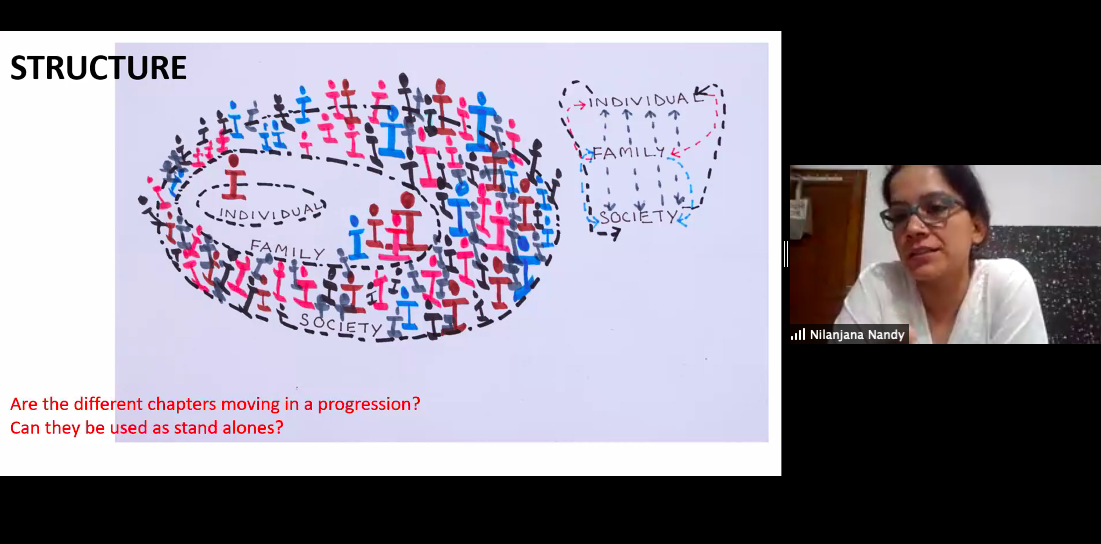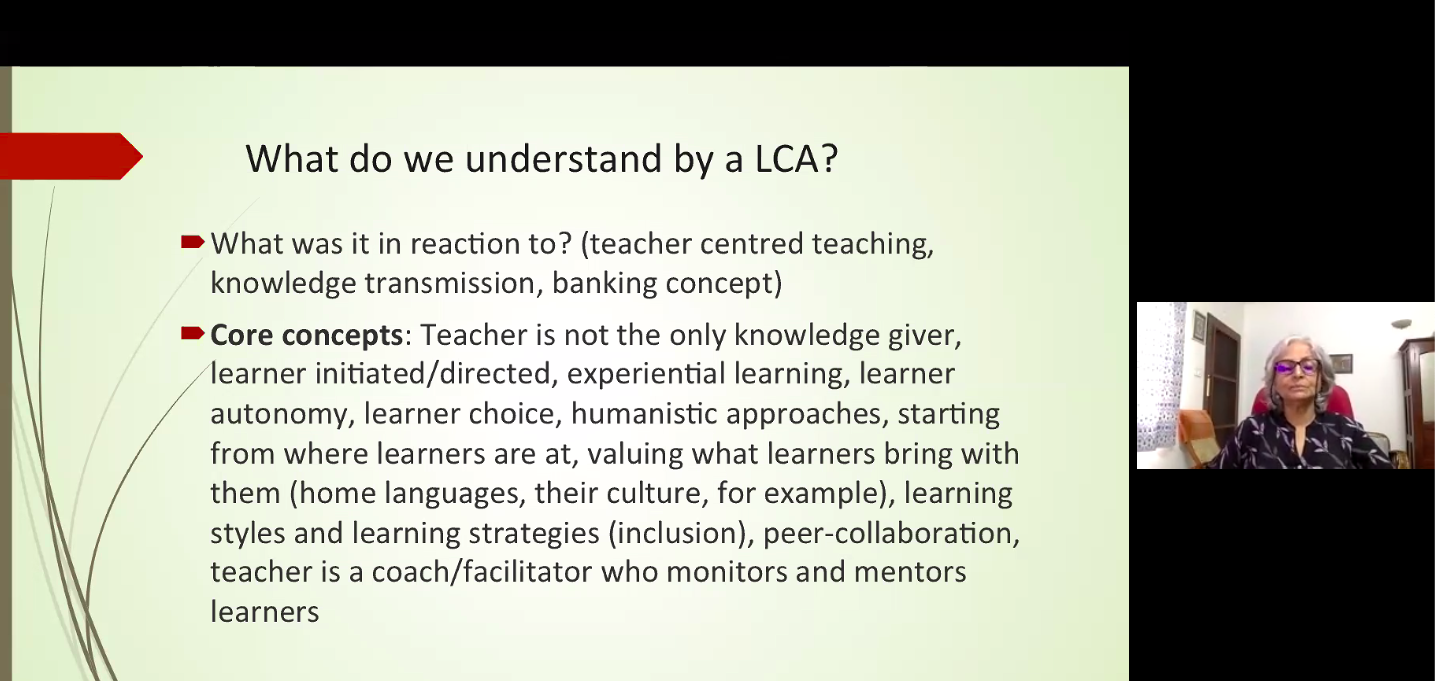Asia Art Archive (AAA) and The Foundation for Indian Contemporary Art (FICA) presented an online workshop for art educators across five days in August 2020. The workshop brought together young artists and educators invested in learning about contemporary art and education for a series of engaging, collaborative sessions that include presentations, brainstorming sessions, and more.
Resource Persons
Anurupa Roy, Basanti Caroline Roublin (TARA Homes), Mary Mansukhani (St. Mary’s School), Michael Creighton (The Community Library Project), Nilanjana Nandy, Peggy Kwan, Prof. Rama Mathew
Shilpa Gupta, Sunandita Mehrorta (Artreach India)
Participants
India: Aditi Jain, Alamelu Annhamalai, Anuja Dasgupta, Arunima Bose, Aurorashmi Mohanty, Kaustav Chatterjee, Ketaki Yadav, Lauren Robinson, Malavika Rajnarayan, Manash Pratim Sharma, Murli Chandora, Nikita Theresa Sarkar, Ritika Sharma, Roshni Bhatia, Sakshi Shraddha, Sameeksha Pareek, Sananda Mukhopadhyaya
Hong Kong: FOK Sui Tong, Gloria NG, Wendy TAI
Nepal: Manantuna Jyapoo, Pushpa Parajul, Sunita Maharjan
Dates: 6, 7, 8, 10 and 18 August 2020
The five-day intensive workshop for young art educators made use of resources, activities, and reflection sessions to explore the act of learning during the global pandemic. As social distancing prompted a shift towards digital learning, it became imperative to make note of the challenges educators face, and to take strides towards developing a teaching strategy that accounts for the conditions that shape education today, including the class divides that create obstacles for making education an essential and non-negotiable right.
Using AAA’s Learning at Home series as a springboard—creative exercises contributed by artist-educators to inspire teachers—the workshop focused on different aspects of teaching, ranging from developing modules to becoming cognisant of learners’ needs. Through lectures, exercises, writing sessions, and case studies, the workshop trained and equipped educators with resources and tools that helped them adapt to new modes of learning. It focused on the new environments educators face; the challenges of technology, emotional well-being and support; and how to account for the background of students.
After four days of intense workshop, participants formed groups to brainstorm and propose lesson plans with educational exercises for students and communities in India. Participants were then invited to share their plans in the follow-up session held a week later.
Speaker Presentations
Day 1: Our first session began by looking at key concerns and priorities that educators focus on with invited speakers Nilanjana Nandy and Peggy Kwan who shared their practices and experiences in the field of education with our participants.
Ways of Reading: Nilanjana Nandy
Incorporating the artist exercise, titled Ways of Cleaning, that she developed as part of the Asia Art Archive Learning at Home Series, Nilanjana Nandy spoke about her process of designing exercises and activities for young learners, providing possible skeletal frameworks of how educators could work towards putting together modules for a variety of learners. She highlighted the role of the family as central to a learner’s all-round development, especially given the present circumstances of schools having shifted online. She introduced a practice-oriented learner-centric approach towards teaching, a theme returned to consistently over the four days of the workshop. Emphasising the interdisciplinary nature of learning, she invited participants to think more about the transferability and translatability of resources, value-based curricula, and contexts and environments of inclusivity that aim for holistic learning.
Implementing Artist Exercises in the Classroom: Peggy Kwan
Taking Tsang Tak Ping ‘Connecting the Pieces of Everyday Life’ as artist exercise, Peggy Kwan led participants further into the idea of gaining inspiration from one’s everyday life while creating and designing artist exercises. She detailed her teaching experiences in Hong Kong, having shifted to the digital during the time of the pandemic. She also introduced the component of learners’ emotional well-being as being at the very centre of a student’s life, dictating how they respond and behave. Peggy shared a number of references from her experiments with the digital, with examples of the different mediums, exercises and references she integrated into her syllabi to enliven and collaborate with the students.
Day 2: Our second day with Mary Mansukhani and Anurupa Roy delved deeper into the centrality of emotional wellbeing today, and underlined the importance of activating peer-led systems of support within classrooms, creating adaptive strategies for teaching in challenging new digital environments, while continuing to prioritize the evolving needs of students. We were also happy to have as a case study presentation, a session with Basanti Caroline Roublin from Tara Homes (Tara Child Protection & Empowerment), moderated by Ita Mehrotra of ArtReach India.
Mapping the Emotional Well-Being Component in Education: Mary Mansukhani
Mary Mansukhani stressed the emotional wellbeing component as foundational to the building of healthy support structures at the core of education. She spoke of her experience of four decades of teaching at schools, and her expertise with inclusive education. Working to actively incorporate peer-support, team-led conflict resolution, and collaborative teaching strategies, she urged participants to consider questions of adaptability, and sensitivity towards diversity within the classroom to foster a learner-centred environment in schools.
Puppet Theatre Journeys - People, projects, pedagogy: Anurupa Roy
Anurupa spoke about her journey through Kathkatha, A Puppet Theatre, where her primary concern has been working to develop pedagogies through generational learning within communities. She took participants on a walkthrough of her work, explaining how Kathkatha started from the need to reinvent the idea of what ‘publics’ are. She continued along an earlier tangent of collaborative learning, learning-as-play, and brought out ways of dealing with boredom, disbelief and distraction. Her presentation was followed by an exercise that she had prepared, asking participants to use simple props such as paper and found objects to challenge the flatness of the digital platform.
Day 3: Our third day brought nuanced concepts of learner-based approaches with Rama Mathew and resource-based teaching strategies with Shilpa Gupta to the participants, encouraging them to build educational practices with and around creativity, critical thinking and accessibility. As part of the case studies presented during the workshop, Michael Creighton and Prachi Grover introduced the mission, functioning and agenda of the Community Library Project.
What do we actually mean by a learner centred approach?: Rama Mathew
Prof Mathew introduced the Learner Centric Approach (LCA) in detail to the participants, demonstrating the inherent meanings, structures, systems, examples and key concepts associated with LCA, presenting a much more holistic alternative to teacher-centred teaching. Through a series of discussions, participants were invited to analyse some of the key concepts in greater detail, examining ways in which they would play out in the classroom. They were introduced to the ideas and possibilities of research-led teaching, where research-mindedness could inculcate a more experiential, involved arena of learning and teaching.
Exploring conversations between art and learning in the digital space: Shilpa Gupta
Artist Shilpa Gupta discussed what it means for artistic practice to be thought of as a resource. She referenced work from her artistic oeuvre that had approaches directed towards public participation and intervention, in order to initiate and inculcate participatory methods of meaning-making and learning. She encouraged participants to consider incorporating artistic exercises in classroom strategies, especially with sensitive and relevant themes. Centralising the main question - how can art be a toolkit for us to explore - the session looked at a number of different works by Shilpa that integrated topics such as boundaries, geography, togetherness, history, poetry and the self in ways that could allow for a creative exploration of the same, by teachers and learners together.
Case Studies
To further enliven the workshop sessions and add in context from different pedagogical and structural setups within the alternative educational sphere in India, a number of case studies were introduced as examples. The case studies were used as touch-points for the art educators, providing them with perspective into learning environments and children’s homes, where there was a diversity in the children’s backgrounds, faced with their own specific sets of measures, methods, problems, and the like. These examples provided specific contexts, with the invited speakers from the organisations providing further insight into their process, learning outcomes, challenges, and more. The case studies were later used for the group assignments, to allow the educator-participants to envision specific contextual environments where the learner was situated.
We are extremely grateful to the organisations that lent us their time and insights.
The case studies included The Community Library Project, TARA Homes with Artreach India, and St. Mary’s School.
As part of our shared initiative to circulate and disseminate the collected learnings, reflections and takeaways from the workshop, we have made available recordings of some of the sessions which can be accessed here.
You can also view the official report on Learning Paradigms Today here.
Co-presented by Asia Art Archive and The Foundation for Indian Contemporary Art.
The AAA Learning and Participation Programme is supported by the S. H. Ho Foundation Limited and C. K. and Kay Ho Foundation.
Poster credits: Untitled (2016), Nilanjana Nandy; Image courtesy of the artist.















